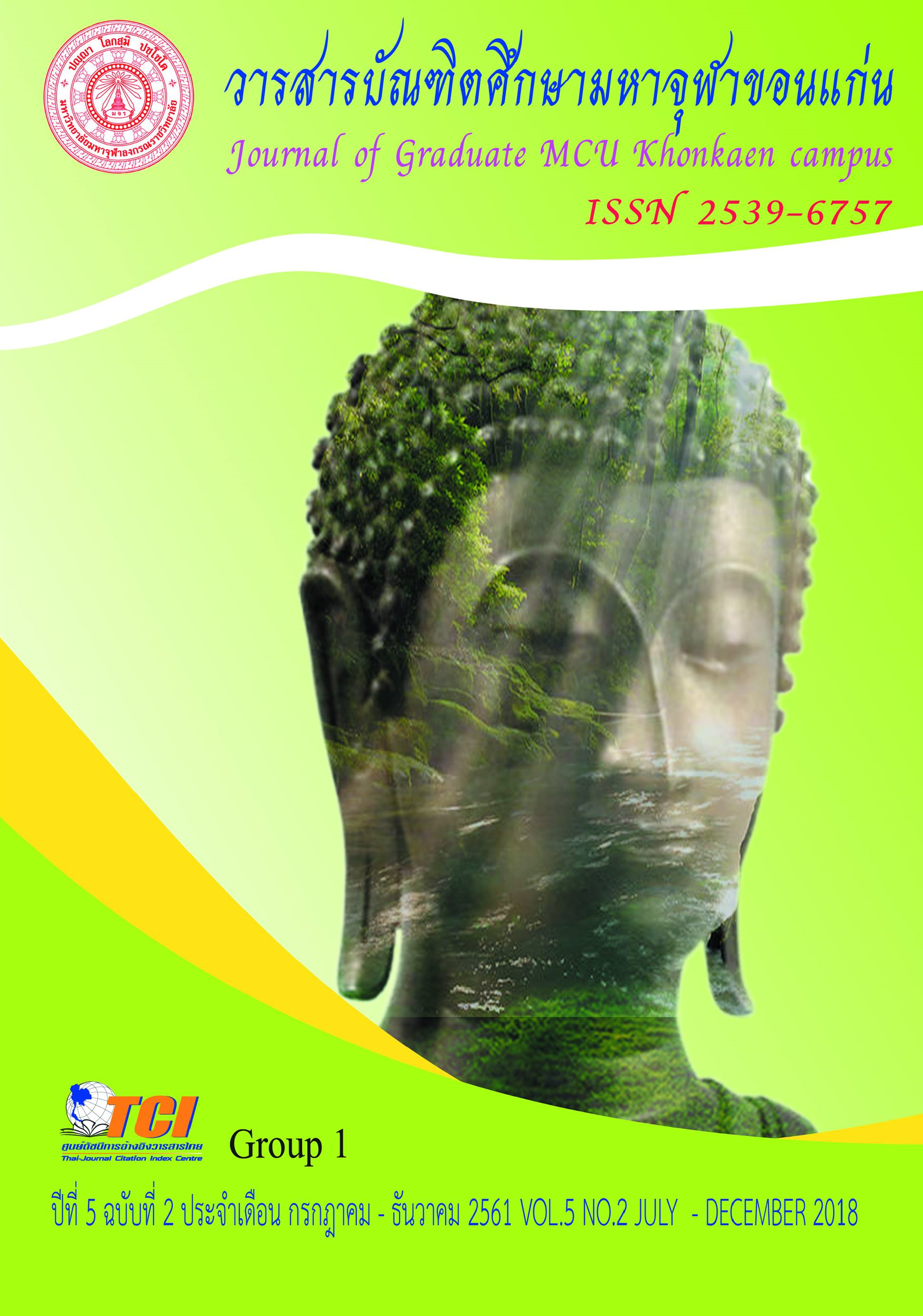การพัฒนาชาวนาไทยรุ่นใหม่เพื่อขับเคลื่อนเศรษฐกิจไทย
Main Article Content
Abstract
บทความนี้มีจุดมุ่งหมายเพื่อสังเคราะห์แนวคิดการพัฒนาชาวนาไทยรุ่นใหม่เพื่อขับเคลื่อนเศรษฐกิจไทยโดยใช้เทคนิคกระบวนวิธีการวิจัยเชิงเอกสารพบว่า ชาวนาตกอยู่ในภาพของความพอเพียง ที่ไม่สามารถสร้างแรงจูงใจในคนรุ่นใหม่หันมาประกอบอาชีพทำนาได้การพัฒนาและส่งเสริมชาวนารุ่นใหม่ต้องเริ่มจากการสร้างภาพ “ชาวนาผู้มีเกียรติ” เพื่อไปสร้างแรงบันดาลใจให้แก่คนรุ่นใหม่ในการประกอบอาชีพเกษตรกร และเพื่อขับเคลื่อนเศรษฐกิจไทยในเวทีโลก โดยมีแนวทางการพัฒนาชาวนารุ่นใหม่แบบ S-M-A-R-T ดังนี้
เมื่อเรียงลำดับความสำคัญองค์ประกอบที่ 1 คือ ความเอาใจใส่ของเกษตรกรเมื่อเกษตรกรมีความรักและเชื่อมั่นในอาชีพทำนาจะทำให้เขาไม่ล้มเลิกหรือเปลี่ยนไประกออาชีพใหม่ องค์ประกอบที่ 2 คือ การบริหารจัดการ เป็นความรู้และทักษะที่จะทำให้เกษตรกรประสบความสำเร็จในอาชีพ องค์ประกอบที่ 3 คือ การค้นคว้าและ พัฒนา เป็นการเอาความรู้ทางหลักวิชาการมาใช้เป็นแนวทางในการแก้ไขปัญหาที่เกิดขึ้นจากการทำนา องค์ประกอบที่ 4 คือ ทักษะการเกษตรความรู้ในการทำการเกษตรที่ชำนาญ รวมทั้งการเปิดรับความรู้ใหม่ๆ และองค์ประกอบที่ 5 คือ เทคโนโลยีที่เหมาะสม เป็นการนำเทคโนโลยีและภูมิปัญญามาประยุกต์ใช้ให้เกิดประโยชน์
This article aimed to synthesize the development on new generation of Thai farmers to propel Thai economy by using the methodology of documentary research found that farmers fell into the image of sufficiency and being unmotivated the new generation turned into farming. The development and promotion on new generation of farmers must start with creating the image of “Noble Farmer” for inspiring to new generations in working as a farmer and propelling the Thai economy in global stage through the development guideline on new generation of farmers with S-M-A-R-Tmodels sorted by the inportance level. The first element was the attentiveness of farmers when they had the love and confidence in farming. They will not give up or change to a new career. The second element was the management. It was the knowledge and skills to help farmers succeed in their careers. The third element was the research and development. It was taken the academic knowledge as a guideline to solve problems that caused from farming. The fourth element was the agricultural skill, professional knowledge of farming including the exposure to the new knowledge. The fifth element was the appropriate technology. It was taken the technology and wisdom to apply for benefits.
Article Details
References
Ngamkamon, K. (2009). Health condition and safety behavior in working of farmers. Thesis for Master of Nursing Science Program in Occupational. Graduate School : Chiangmai University. Office of Agricultural Economics. (2014). Fundamental data of agricultural economics of the year 2013. Nonthaburi : The Agricultural Cooperative Federation of Thailand. Office of Economic and Social Development of Central Region. (2010). Way of live of farmers in central region : new issue under the trend of change. Bangkok : Office of the National Economic and Social Development Board. Santasombat, Y. (2003). Dynamic and flexibility of farmer’s society: community economy in northern regionand paradigm shift of the communities in the third worldcountries. Chiangmai : Within Design Company Limited. Satsa-nguan, N. (2002). Culture of rice in Thai Society: an existence and change. Bangkok : Text and Journal Publication Co., Ltd. Sirisathitkit, P. (2014). A development of sustainable adaptation of farmers in watershed area of Songkla lake. Dissertation for Doctor of Philosophy in Development Education. Graduate School : Silapakorn University. Thansettakij. (2015). How to reform Thai farmers for being sustainable?. Thansettakij Newspaper, (35)5, 72. Thaothawin, P. (2008). The existence of farmer’s society: a case study of debt problem in suburban villages. Journal of Liberal Arts, UbonRatchathani University. 4(5), 1-15. Thonglim, S. (2013). Solution and obstacle of Thai agricultural system. Bangkok : Amarin Printing and Publishing Limited. The Secretariat of the House of Representatives, National Reform Council. (2017). The guidelines of reforming rice systematically. Bangkok : The Committee of National Economy Reform Steering Assembly, National Reform Council. Woods, M. (2011). Rural. London and New York : Routledge. Yaimuang, S. et al. (2016). A review of knowledge and development of issues for adaptation of Thai farmer throughout the change of growing and marketing rice. Bangkok : Thailand Research Fund.

